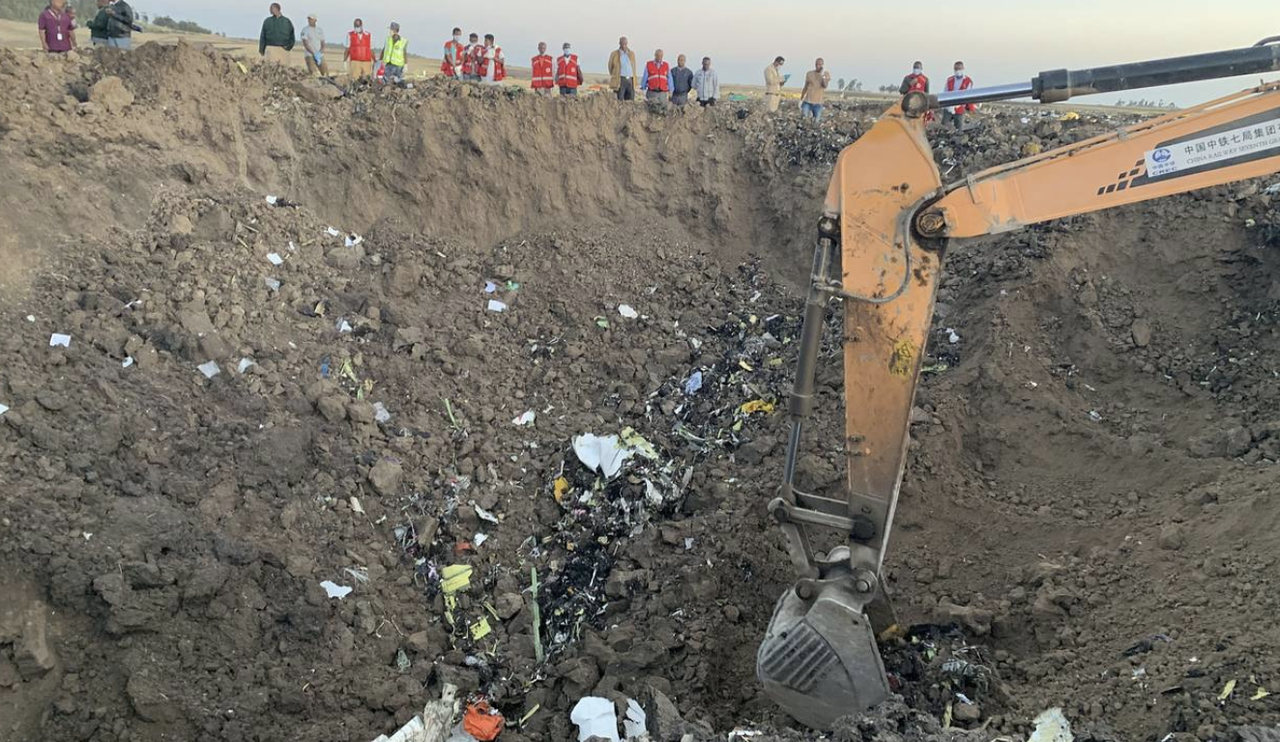With Boeing’s shares still stuck in a rut, the investigation into flight ET302 – the second Boeing 737 MAX 8 to mysteriously crash within a five-month period – has analysts and investors worried about the possibility that the Boeing’s controversial MCAS software might have played a role in the crash, which killed nearly 160 people. It’s widely suspected that the anti-stall software contributed to the Ethiopian Air crash, as well as an October accident involving a Boeing 737 flown by Indonesian budget carrier Lion Air, which, like ET302, crashed just minutes after takeoff.
With preliminary results from the Ethiopia Airlines probe expected as soon as later this week, EA CEO Tewolde Gebremariam offered the Wall Street Journal a glimpse into the results…which appeared to confirm what many have suspected.
That is, according to the initial analysis of data from the flight, it appears MCAS was active when ET 302 plunged out of the sky and crashed in a field outside the Ethiopian capital of Addis Ababa.
Investigators are using information from the plane’s data and cockpit recording devices to probe the crash, and they could release a preliminary report as early as later this week. Mr. Gebremariam isn’t part of that probe, but he is familiar with many aspects of the six-minute flight of the jet, which ended in the death of all 157 aboard.
Mr. Gebremariam didn’t detail how he had made his determination about MCAS. He doesn’t have access to the precise detail from the data and voice recording devices, but he has listened to recorded radio communications between the cockpit of the flight and the tower at Addis Ababa airport, from which the flight departed on March 10.
“To the best of our knowledge,” MCAS was activated on the flight, Mr. Gebremariam said in the interview, adding though that he wanted to wait for the investigation for conclusive evidence. Aviation authorities have noted similarities between the short flights of the Ethiopian jet and one that crashed in October in Indonesia, based on flight data including things like altitude and speed. Citing those similarities, they have grounded the plane model around the world.
Boeing has already promised to revamp its flight control systems and offer more resources to help train pilots, but the company wasn’t available for comment for the WSJ story. In any case, Gebremariam said that it would be difficult for Boeing to “restore trust” in its products following the deadly crashes, though he added that the airline still “believes in Boeing”, the company should have been more forthcoming about changes to flight software when EA first purchased the planes.
In a statement by Ethiopian Airlines early on Monday, Mr. Gebremariam said the airline still “believes in Boeing.”
MCAS is designed to help pilots avoid the plane’s nose pitching up and entering a stall, leading to a loss of control of the plane. But on the Lion Air flight, MCAS was fed erroneous information from a sensor, causing the system to misfire, accident investigators into that probe have said. The system repeatedly pushed the plane of the nose down even though the jet wasn’t at risk of stalling.
Mr. Gebremariam said he thought Boeing should have been more proactive on informing airlines about the MCAS system when they delivered the planes, and especially after the Lion Air crash.
“In retrospect I would have expected them to have been more transparent on the MCAS, the technicalities of the MCAS, what it does and what it doesn’t do,” Mr. Gebremariam said. “And even after the Lion Air crash…more should have been done from the Boeing side in terms of disclosure, in terms of coming up with strong procedures, stronger than what they gave us,” he added.
The aerospace company has been roundly criticized for selling “optional” safety features that critics like Ralph Nader have argued should have been packaged with each jet. And if the software is found to have been the cause of both the Lion Air and Ethiopia Air crash, expect to see more airlines cancel their orders.
via ZeroHedge News https://ift.tt/2U0FPXx Tyler Durden
